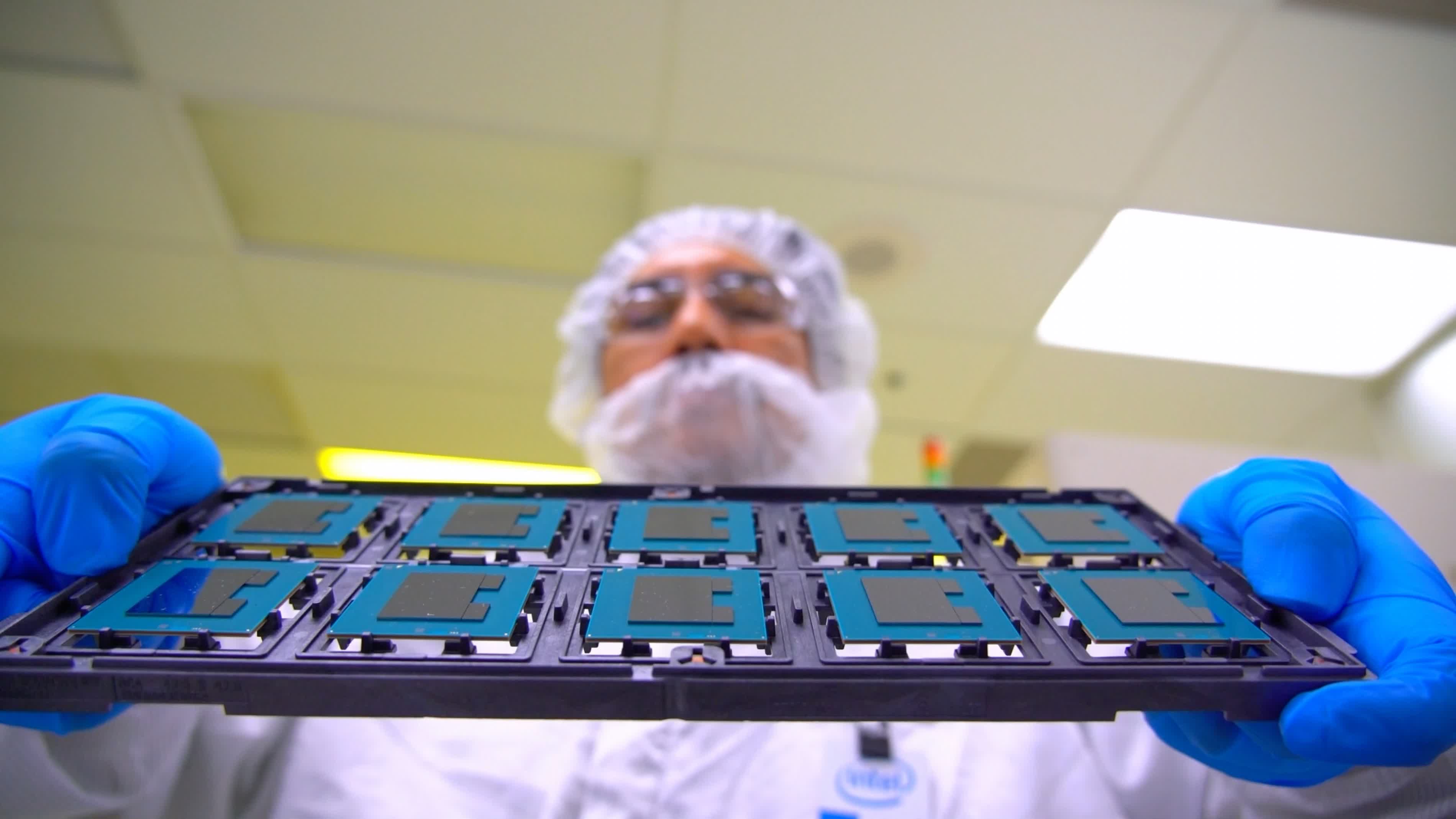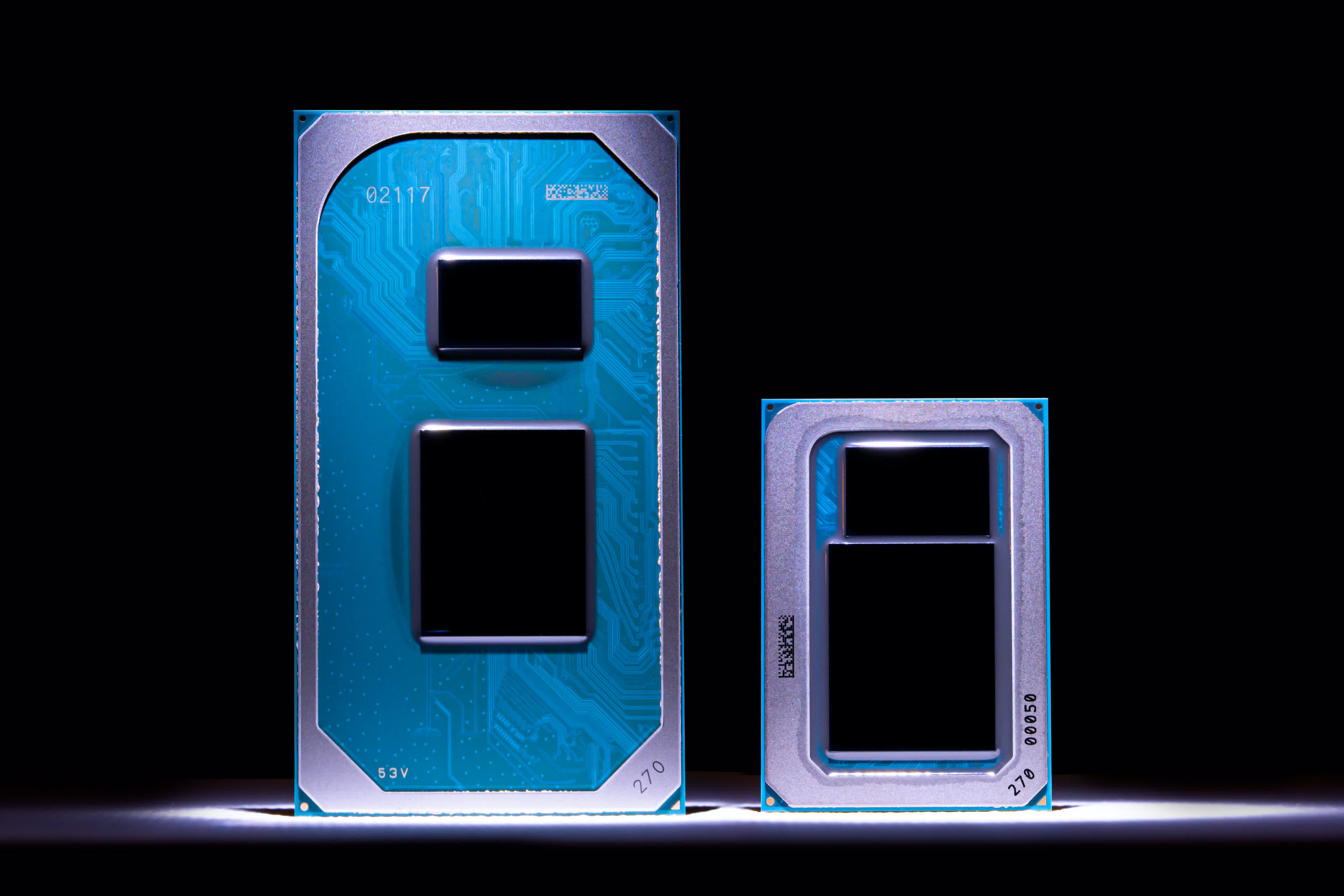In brief: The Pat Gelsinger-powered Intel is now willing to admit that it failed to deliver x86 chips on the level of Apple Silicon, which is why the latter company is now in the process of transitioning its entire Mac product line to custom Arm-based chipsets that are as powerful as some desktop CPUs while needing much less power to operate.
Intel CEO Pat Gelsinger is widely expected to turn the company into the leader of process and packaging technology by 2025. To that end, Intel has started expanding its chip manufacturing capacity and created a new division in the form of Intel Foundry Services, which will take on contract manufacturing for companies like Qualcomm and Amazon, as well as government clients like the US Department of Defense.
At the same time, the company is scrambling to make its processors more attractive to both consumers and enterprise customers, after losing some market share as well as mindshare to AMD and a number of startups creating Arm-based processors.

Recently, Gelsinger claimed that Intel is back with a vengeance, and that AMD's lead in the x86 CPU space would soon come to an end. Team Blue also has big plans for the GPU market, and the new CEO is convinced there is an unmet need for alternative GPUs alongside those made by Nvidia and AMD.
Last time Intel tried to make a graphics card, things didn't go so well, but at least on paper the Xe-HPG (aka Alchemist) architecture looks impressive. All it needs is to come to market sooner rather than later, as the window of opportunity is shrinking. Then there's the issue of manufacturing volume, as Intel has chosen to outsource Alchemist GPU production to TSMC.
When I look @intel, I see limitless potential. This company continues to evolve, but one thing remains constant: we're just getting started. #iamintel pic.twitter.com/6XFfgCDdku
--- Pat Gelsinger (@PGelsinger) February 15, 2021
Beyond these promises, Intel is finally willing to admit that losing Apple as a customer is something the company wanted to prevent but couldn't because the latter "decided they could do a better chip themselves than we could." Just as Apple reveals a new MacBook Pro lineup powered by custom Arm-based silicon, Gelsinger says Intel hopes it can mend its relationship with the Cupertino giant. He does, however, admit that it will take a lot of effort to come up with a better chip, and that this will be a gradual, multi-year process. For now, Apple is slowly breaking up with Intel after using its processors across the entire Mac product line for almost two decades.

Some of you may recall the poorly received ad campaign where Intel hired former "PC vs Mac" ad actor Justin Long to criticize the lack of diversity in Apple's MacBook line, or the attempts to discredit the notion that the Cupertino company had managed to come up with a chipset every bit as powerful as a desktop CPU while staying cooler and conserving battery life. Earlier this month, it even conducted a so-called "social experiment" where it sought to prove that Apple fans are somehow ignorant of what a PC could do for them when compared to a Mac, while completely ignoring the software side of things.
Gelsinger's strategy of earning back Apple's trust in its abilities will be to outcompete the latter and demonstrate that developers and consumers are still drawn to its x86 offerings. During an interview with Axios, he pointed out that Intel is already executing on that idea with things like the partnership with Microsoft where it's working to bring Android apps to Windows 11.
Overall, it looks like the Pat Gelsinger-powered Intel is willing to take a hard look into the mirror and find the things that led it to the current state. Whether or not the company can use that to change its culture and reinvent itself, only time will tell.
